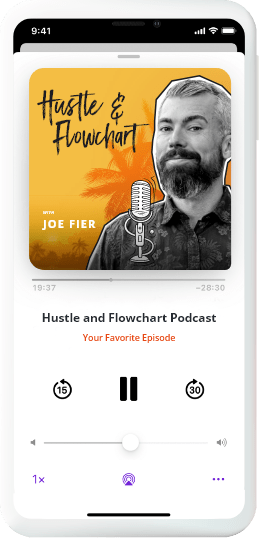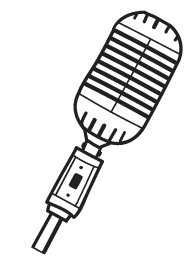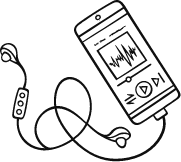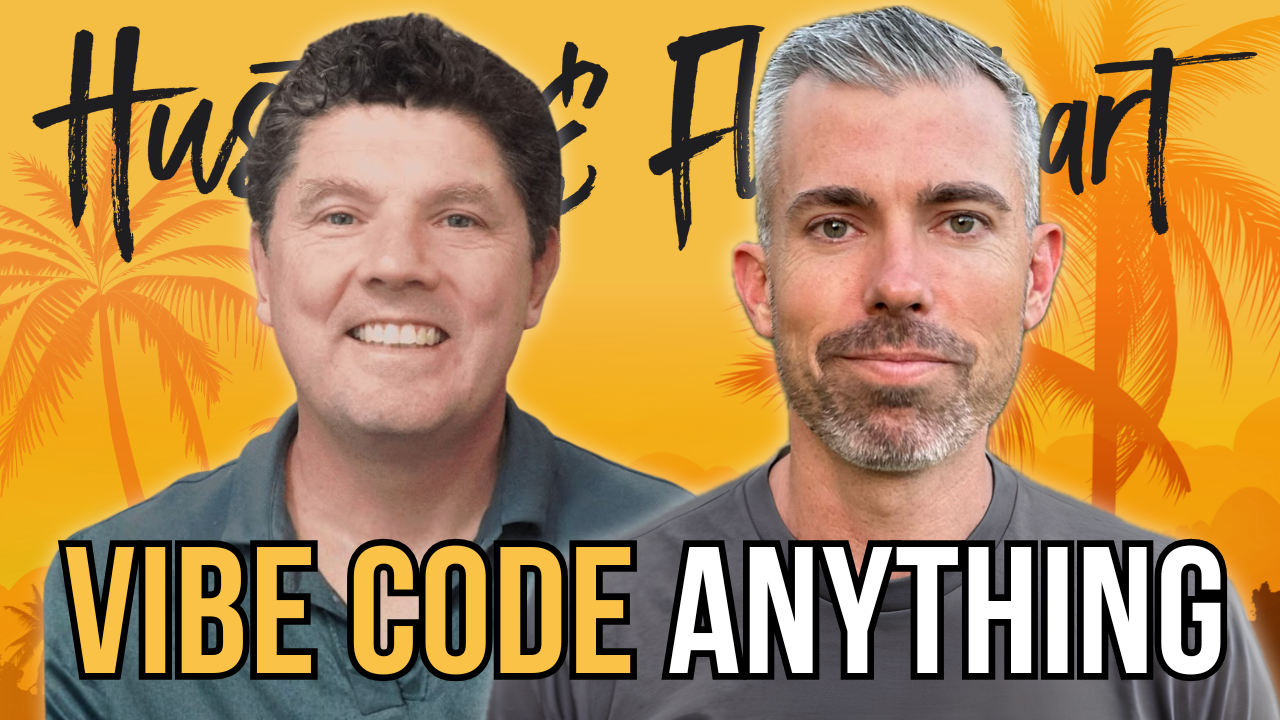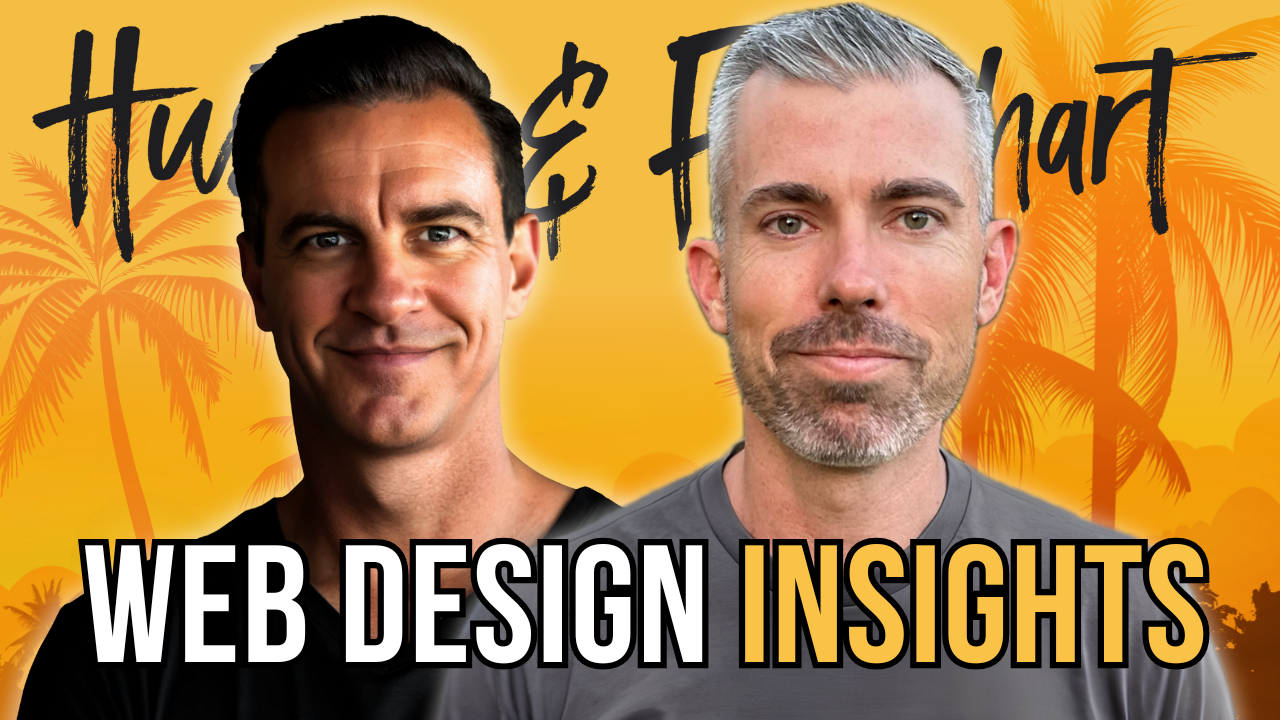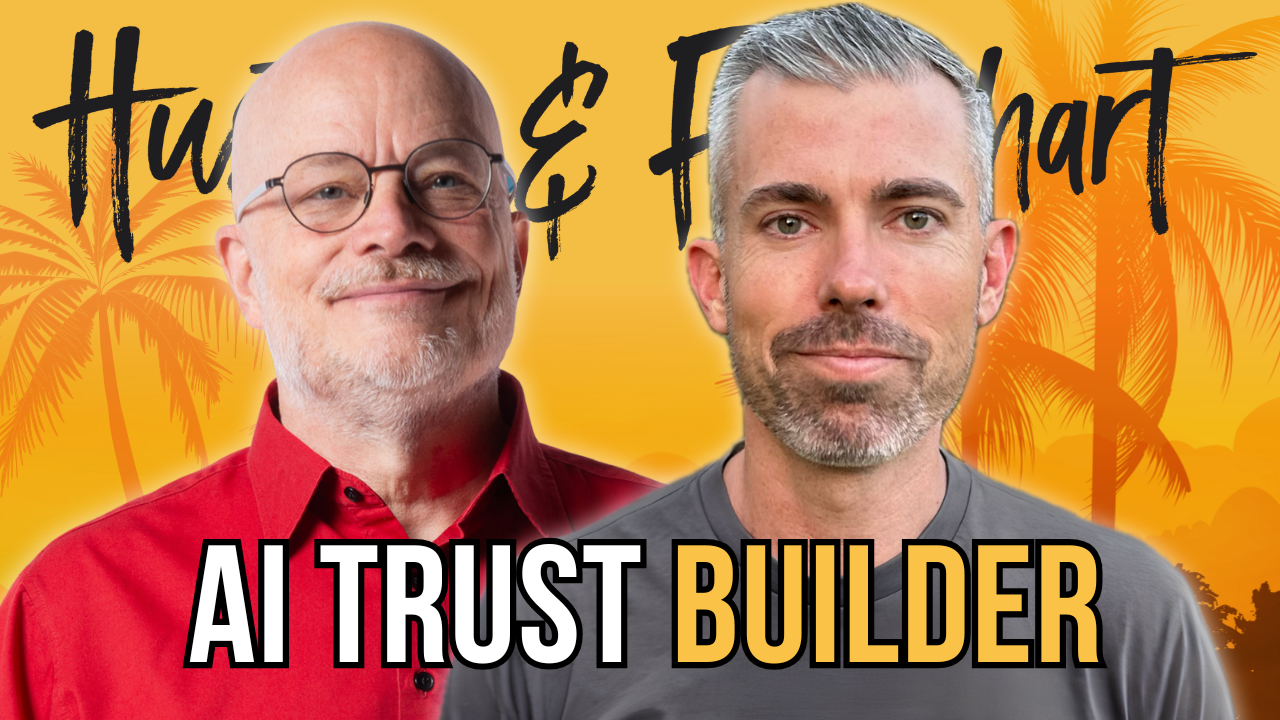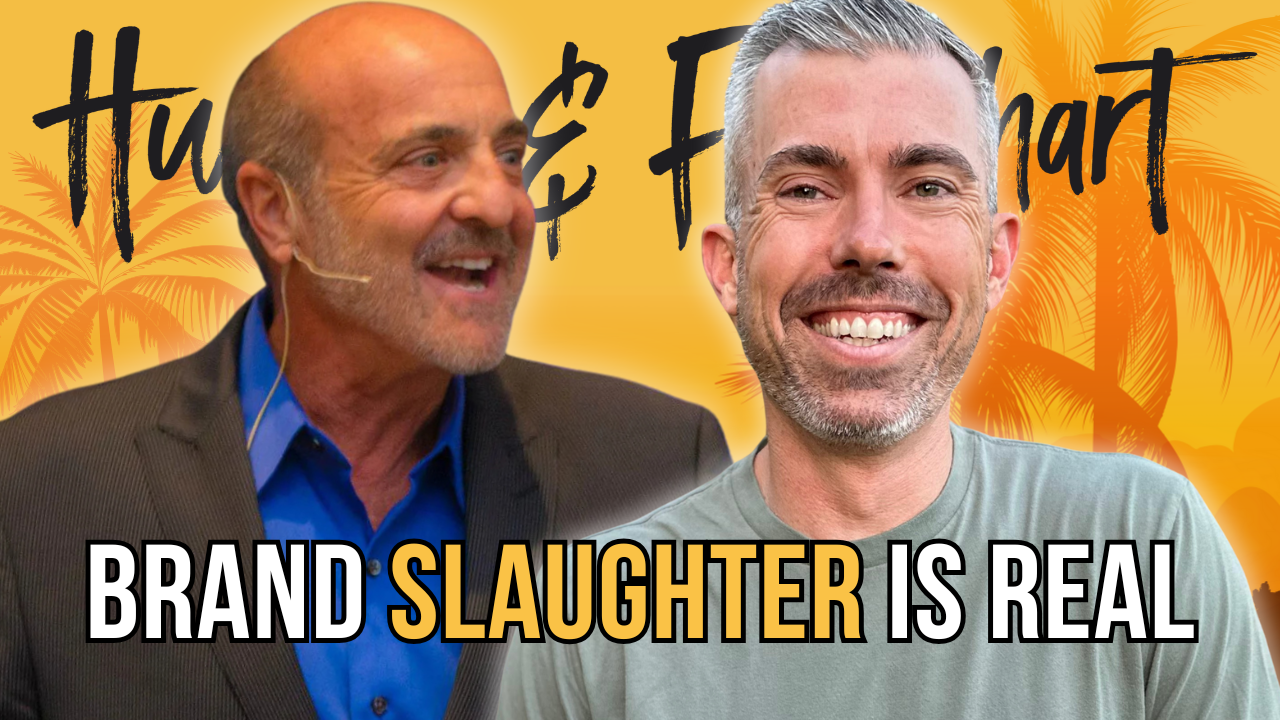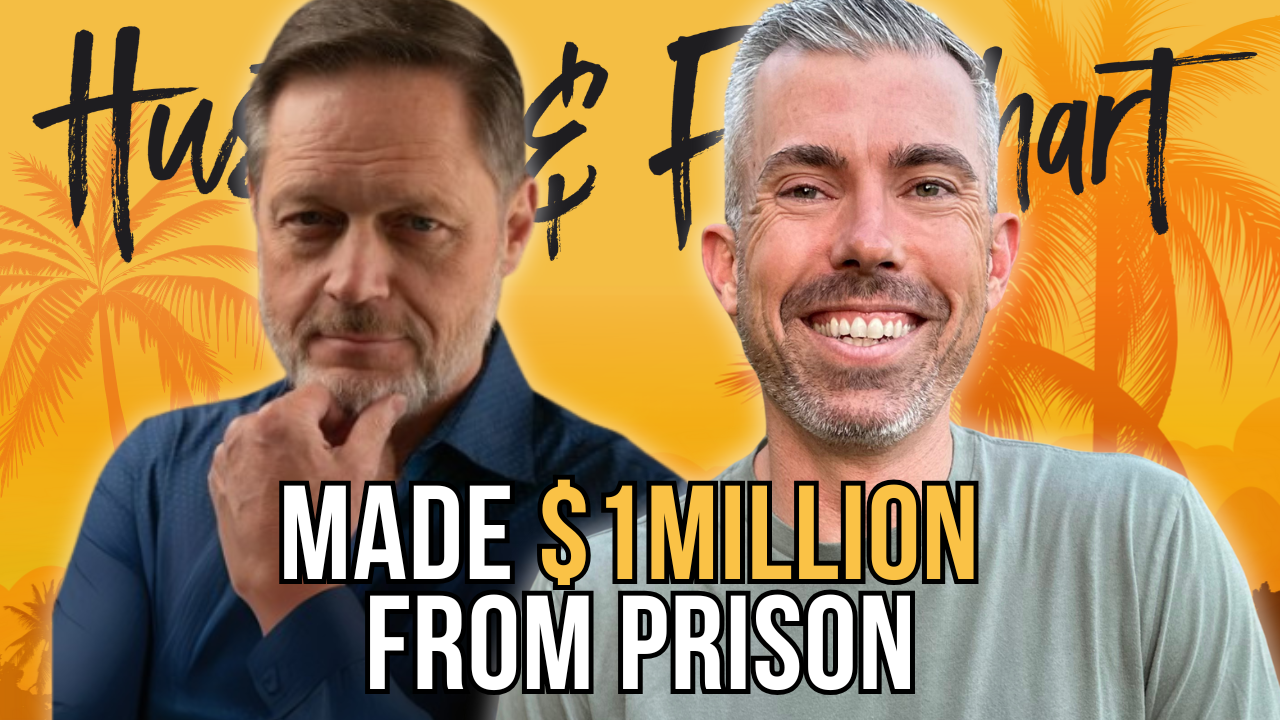I wanted to tackle something head-on that almost every entrepreneur and high achiever battles: stress, burnout, procrastination, and even that hidden sense that things can fall apart anytime. Dr. Don Wood from the Inspired Performance Institute joined me for a powerful conversation that opened my eyes to how our brains work—and how old, unresolved trauma can fuel not just our biggest problems, but also our biggest wins (while costing us peace of mind).
I brought Dr. Don on the podcast to help us figure out whether our anxiety and struggles are really “flaws” in our character, or just glitches in the way our brains try to keep us safe. He shares his surprising story of going from entrepreneur to PhD, developing methods to “reset” the mind after trauma—including the type you probably don’t even realize you have. We get very real about performance, health, business, childhood, and how protecting yourself from pain can keep you from enjoying your hard-earned wins.
Table of Contents
ToggleWhat Is Trauma and How Does It Affect Entrepreneurs?
Dr. Don Wood focuses on how both big and small traumas—sometimes ones we don’t even remember—shape the way we act today, including in business. Many people think “trauma” means some huge, life-shattering event, but Don calls a lot of them “emotional concussions”: smaller moments that still cause the mind to try to protect us, often in sneaky ways.
High achievers and entrepreneurs often live in a constant state of fight-or-flight, even if things seem to be going well. The result? Burnout, stress, racing thoughts, procrastination, and even trouble enjoying your own success. Don says our brains are trying to guard us from pain, not sabotage us. But that protection can feel a lot like self-sabotage if we don’t know what’s really driving it.
Key Takeaway: Many self-defeating habits are actually “protection systems,” not signs that we’re broken.
The Science: How Trauma Becomes a Glitch in Your Brain
Your mind works like a computer, says Dr. Don. The hardware is your brain. The software (or programs) is your subconscious mind—which stores memories with all the sights, sounds, and feelings as if they’re happening right now.
Trauma files get recorded in high-definition, replaying over and over and activating your survival system even if nothing’s wrong in the present. Only humans store such detailed, emotional memories. That means a stressful business situation today could trigger anxious or fearful responses from problems that happened years or decades ago.
Don says, “Your subconscious operates in the present. It sees everything as now.” If you start shaking or feeling upset when talking about something that happened long ago, that’s your mind trying to protect you from a threat it thinks is still there.
Key Takeaway: Most sabotage is just the brain working to keep you safe from old memories—sometimes ones you never consciously remember.
Business Success and Hidden Pain: Real Life Examples
Dr. Don shared many stories of high-performing people “getting in their own way” due to hidden trauma:
- A trader self-sabotaged every fourth quarter (the most volatile time). His pattern traced back to childhood memories of his father going bankrupt—he was afraid to lose it all again.
- A business owner procrastinated on sales follow-up, not out of laziness, but because she was unconsciously avoiding the stress that followed early childhood criticism.
- Even top professional athletes, like Prince Fielder, deal with depression and anxiety despite their achievements.
Quote: “After he goes through the program, he said, ‘I’ve never felt so much peace in my life driving home. And then he sends me a message…he said it had his best year ever.’”
Key Takeaway: Success can be driven by fear or pain. Recognizing where it comes from is key to real happiness and sustained performance.
Emotional “Concussions”: Not Just Big T Traumas
Many people don’t realize their struggles or patterns come from “little” traumas. Dr. Don calls these emotional concussions: moments of embarrassment, criticism, or feeling unsupported that stick with us for years.
Example: A girl whose mother, the school principal, criticized her homework in front of her. As an adult, she procrastinated—but only because her brain linked “finishing homework” to “getting criticized.”
Another example: High-stress professional life driving “perfectionism” or constant worry, not because of a major disaster, but repeated small incidents.
Key Quote: “If you start to talk about it and you get emotional, it’s active. The purpose to an emotion is a call for an action.”
Key Takeaway: Many blocks are from small but repeated stresses, not just giant traumas.
Fight, Flight, or Freeze in Business
Patterns like procrastination, perfectionism, or avoiding big decisions are really just fight, flight, or freeze responses showing up in business life.
Dr. Don explains that these protection systems can look like:
- Putting off work (freeze/procrastinate)
- Avoiding deals or conversations (flight)
- Getting angry (“I’ll show them!” – fight)
- Working non-stop and never relaxing (hypervigilance)
These aren’t weaknesses—they’re natural responses to moments when your mind felt threatened in the past. The subconscious mind reacts to “triggers” it recognizes, even if there’s no real danger now.
Key Takeaway: Recognize your business struggles are usually old coping skills still running—now in a new context.
How the Subconscious Mind Runs the Show
Ninety-five percent of what you do comes from the subconscious, not conscious thought. Your subconscious is always on the lookout for danger and reacts based on past memories—not logic.
Animals don’t relive past threats; humans do. That’s why fear, anger, or even certain physical symptoms can suddenly appear, even when you rationally know you’re safe.
Example: A golfer repeatedly “choked” on a hole with water. He focused on memories of failing there before—so the subconscious saw it as a life-or-death situation.
Key Quote: “The conscious mind cannot override that. It’s subconscious survival based.”
Key Takeaway: The subconscious mind is the real boss. You can’t talk your way out of old patterns—you need to change the code.
Trauma, Health, and Disease: The Surprising Link
Dr. Don shares his personal story: his daughter was diagnosed with Crohn’s disease and another rare immune problem. The medical experts had no cure or cause. But Don suspected a psychological cause: childhood trauma. By addressing the trauma, she found real healing.
Chronic trauma or stress keeps your body in survival mode, making it hard to heal. Inflammation goes up, the immune system drops, and all sorts of diseases can show up or get worse.
Dr. Don believes, “80% of the diseases and everything we’re treating today are psychological based, about 20% maybe physical, but 80% are psychological.”
Key Takeaway: Old trauma doesn’t just affect your mind—it changes your body, too.
Childhood, Parenting, and “Atmospheric Conditions”
The way we’re raised—the “atmospheric conditions” at home—sets our emotional patterns for life.
- “Bright and sunny” childhoods usually create calm, flexible adults.
- “Dark and stormy” childhoods create hypervigilance, worry, or hiding.
Example: Dr. Don’s wife grew up in a high-fear home. Even while living out her dreams as an adult, she struggled to relax and always waited for something bad to happen. Her mind just saw danger everywhere—until she worked on healing those old wounds.
Parents need to choose words carefully. Kids between 0-7 believe things literally; a well-meaning “compliment” like being a “heartbreaker” can be misunderstood and cause fear. Don suggests always making home a safe, loving place—without anger, shame, or fear.
Key Quote: “Make your home safe. It’s gotta be the place they can come back to. Doesn’t mean that they get away with things.”
Key Takeaway: Early experiences set the mental programs our brain uses to keep us safe (or stuck) later on.
Key Steps for Healing and Better Performance
Awareness is the first step. Ask people you trust about your patterns—sometimes they’ll see what you can’t.
Dr. Don’s process involves calming the mind, moving it to a safe, “alpha” state, and gently recoding memories so they lose their emotional punch. He spends hours just helping clients understand how the brain works before even addressing specific traumas.
Therapy isn’t about reliving pain, but about removing the emotional “charge” so the old events don’t keep triggering anxiety, procrastination, or fear in the present.
Tips for Listeners:
- Notice what emotions get triggered and when.
- If a memory or criticism still brings emotion, it’s still running the show.
- Get an honest outside opinion about your habits and struggles.
- Seek real help—all brains can be “rebooted.”
More about Dr. Don Wood’s Inspired Performance Institute
Dr. Don’s TIP (Inspired Performance) program helps people—from business leaders to athletes—get rid of old glitches and live with more calm, energy, and focus. He’s worked with everyone from military veterans to major league stars.
Talking with Dr. Don Wood helped me see that procrastination, anxiety, and even some health problems aren’t weaknesses—they’re just signs our brains and bodies are running old safety programs. Business success built on fear doesn’t feel like success; true change comes from understanding the glitches and clearing out the old code.
If you’ve ever felt stuck, stressed, or “off” in your work or your life, know this: it’s not your fault—and you can change it. For more resources or if you want to look into Dr. Don’s methods, check out Inspired Performance Institute.
Two Other Episodes You Should Check Out
- Trauma Is a Toxin: How Dr. Don Wood on Clearing Trauma for True Mind-Body Healing
- The AI Gold Rush: Most Entrepreneurs Are Failing—Here’s What Only 0.8% Understand!
Connect with Joe Fier
- What if you could have a FREE personal mentor on-demand?! With Joe's Hustle & Flowchart AI clone, you can tap into the knowledge from over 600 episodes any time! Whether you need advice on scaling, marketing, or productivity, my AI clone is here to help.
- Want us to build your clone for you? We’ll handle setup, testing, and integration so you can launch fast. Head to HustleandFlowchart.com/interest to get started!
- Hubspot has launched a whole new suite of AI Tools, check them on the Hubspot.com
- Check out other podcasts on the HubSpot Podcast Network
- We want to hear from you. Send us the One Thing you want to hear on the show.
- Connect with Joe on LinkedIn and Instagram
- Subscribe to the YouTube Channel
- Contact Joe: joe@hustleandflowchart.com
Thanks for tuning into this episode of the Hustle & Flowchart Podcast!
If the information in these conversations and interviews have helped you in your business journey, please head over to iTunes (or wherever you listen), subscribe to the show, and leave me an honest review.
Your reviews and feedback will not only help me continue to deliver great, helpful content, but it will also help me reach even more amazing entrepreneurs just like you!







